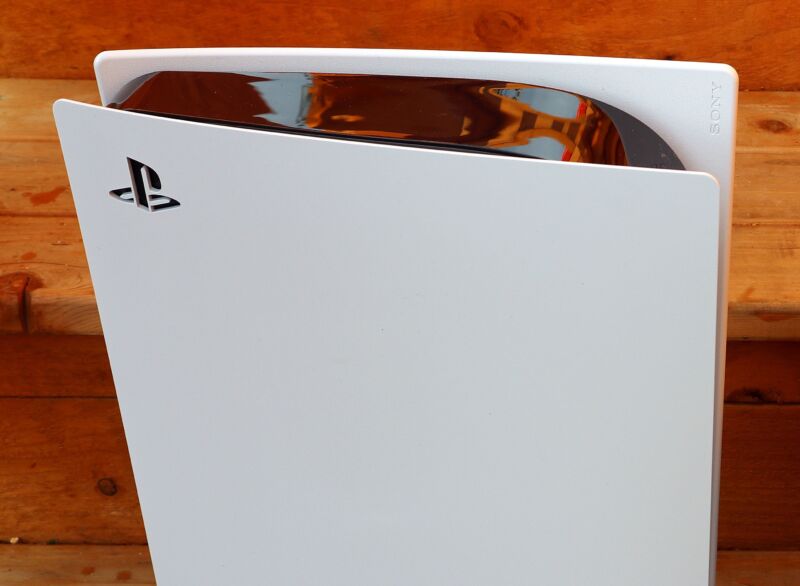
In the early hours of Thursday morning, Sony announced massive news for its PlayStation 5 console family. Around the world, console prices are going up.
The price hike for both models of PlayStation 5 (one with a disc drive, one without) is effective immediately in at least six regions, with Japan joining the price-hike fray on September 15. Sony’s announcement lists specific price increases for some of its biggest gaming territories, yet it additionally warns that “select markets” may see their own price hikes in the coming days. These include territories in the Asia-Pacific region, Central and South America, and the massive cluster of nations that comprises the EMEA (Europe, the Middle East, and Africa).
Somehow, one particular region is out of Sony’s price-hike crosshairs for now: the United States.
| PS5 price hikes, August 2022 | |||
|---|---|---|---|
| New | Old | Percentage increase | |
| Europe | 549.99 euro | 499.99 euro | 10 |
| Europe (all-digital) | 449.99 euro | 399.99 euro | 12.5 |
| UK | 479.99 pounds | 449.99 pounds | 6.7 |
| UK (all-digital) | 389.99 pounds | 359.99 pounds | 8.3 |
| Japan* | 54,980 yen | 49,980 yen | 10 |
| Japan (all-digital)* | 44,980 yen | 39,980 yen | 12.5 |
| China | 4,299 yuan | 3,899 yuan | 10.3 |
| China (all-digital) | 3,499 yuan | 3,099 yuan | 12.9 |
| Australia | AU$799.95 | AU$749.95 | 6.7 |
| Australia (all-digital) | AU$649.95 | AU$599.95 | 8.3 |
| Mexico | MX$14,999 | MX$13,999 | 7.1 |
| Mexico (all-digital) | MX$12,499 | MX$11,499 | 8.7 |
| Canada | CA$649.99 | CA$629.99 | 3.2 |
| Canada (all-digital) | CA$519.99 | CA$499.99 | 4 |
* Japan’s price hike will not go into effect until September 15, 2022.
The price hike appears to be a flat amount of currency in each affected region for both PS5 models. Thus, on a percentage basis, the more affordable PS5 models without disc drives are hit harder by today’s news. Canada gets off the easiest with today’s increase on a percentage basis, while Europe, Japan, and China are each tied for PS5’s harshest price increases.
Sony attributes the across-the-board price jumps to two major economic factors: rising inflation and historic lows for the Japanese yen. The US’s purchasing power doesn’t seem immune to either of those issues, so it’s unclear whether Sony’s assurance that “there will be no price increase in the United States” is an ironclad one.
Bad news for the upcoming PSVR2?
The price hike follows similar news from Meta’s virtual reality division, which opted to raise prices for its Quest 2 VR system late last month. Meta attempted to soften the impact of its $100 across-the-board price hike by including a free download of its popular rhythm-action game Beat Saber, which normally retails for $30.
As of press time, Sony has not suggested that it will include any downloadable freebies as part of its price-hike plan, though its jump in price currently doesn’t appear to exceed 13 percent in any region, as opposed to Meta’s price increase reaching either 25 or 33 percent, depending on the model.
Curiously, Sony’s Tuesday launch-window announcement about its next virtual reality system, PlayStation VR2, did not suggest a retail price. Perhaps Sony is keeping that news under wraps to buy more time to price that PS5 add-on amid current market realities. (This may prompt some rethinking on our recent guesses about PSVR2 prices.)
Ars Technica’s Kyle Orland recently researched the history of console prices, though his analysis mostly revolved around the Nintendo Switch, a 2017 console that has had more years to grow long in the tooth in terms of its price-to-performance ratio. If that mega-selling console had followed historic console pricing trends, Orland’s analysis suggests its price might have dropped by now to a figure between $150 and $180 in the United States. Yet a combination of economic factors, including a chip shortage and unusually high demand for a years-old gaming system, has helped Switch hold fast to its original MSRP worldwide.
Orland’s report was prompted in part by Nintendo recently assuring investors and financial watchdogs in its home nation of Japan that Switch’s price would not increase in the near future. Neither Sony nor Microsoft’s Xbox division had made similar promises ahead of Thursday’s PS5 news. Microsoft enjoys a few advantages compared to Sony within the same inflation-filled marketplace: namely, a more diverse financial portfolio, more than double Sony’s cash reserves, and much less reliance on the Japanese yen. Time will tell whether Microsoft will continue absorbing the inflation-related costs of keeping its own Xbox console prices static.
https://arstechnica.com/?p=1876040

